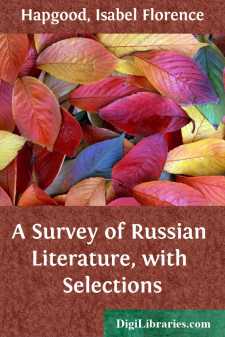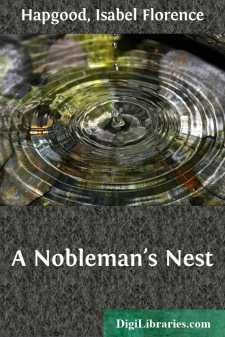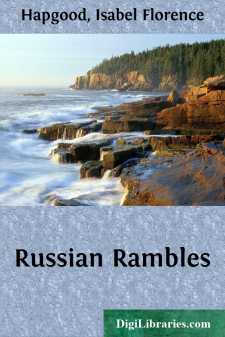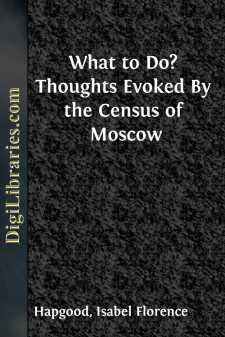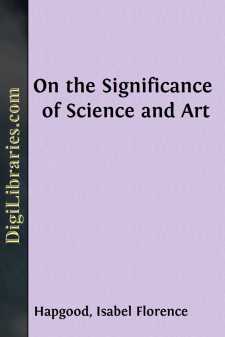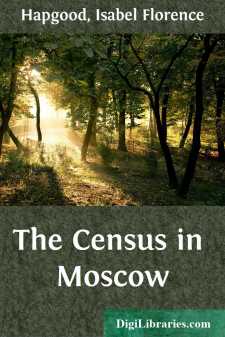Categories
- Antiques & Collectibles 13
- Architecture 36
- Art 48
- Bibles 22
- Biography & Autobiography 813
- Body, Mind & Spirit 142
- Business & Economics 28
- Children's Books 14
- Children's Fiction 11
- Computers 4
- Cooking 94
- Crafts & Hobbies 4
- Drama 346
- Education 46
- Family & Relationships 57
- Fiction 11829
- Games 19
- Gardening 17
- Health & Fitness 34
- History 1377
- House & Home 1
- Humor 147
- Juvenile Fiction 1873
- Juvenile Nonfiction 202
- Language Arts & Disciplines 88
- Law 16
- Literary Collections 686
- Literary Criticism 179
- Mathematics 13
- Medical 41
- Music 40
- Nature 179
- Non-Classifiable 1768
- Performing Arts 7
- Periodicals 1453
- Philosophy 64
- Photography 2
- Poetry 896
- Political Science 203
- Psychology 42
- Reference 154
- Religion 513
- Science 126
- Self-Help 84
- Social Science 81
- Sports & Recreation 34
- Study Aids 3
- Technology & Engineering 59
- Transportation 23
- Travel 463
- True Crime 29
A Survey of Russian Literature, with Selections
Categories:
Description:
Excerpt
THE ANCIENT PERIOD, FROM THE EARLIEST TIMES TO THE INTRODUCTION OF CHRISTIANITY IN 988.
Whether Russia had any literature, or even a distinctive alphabet, previous to the end of the tenth century, is not known.
In the year 988, VladÃmir, Grand Prince of KÃeff, accepted Christianity for himself and his nation, from Byzantium, and baptized Russia wholesale. Hence his characteristic title in history, "Prince-Saint-equal-to-the-Apostles." His grandmother, Olga, had already been converted to the Greek Church late in life, and had established churches and priests in KÃeff, it is said. Prince VladÃmir could have been baptized at home, but he preferred to make the Greek form of Christianity his state religion in a more decided manner; to adopt the gospel of peace to an accompaniment of martial deeds. Accordingly he compelled the Emperors of Byzantium, by force, to send the Patriarch of Constantinople to baptize him, and their sister to become his wife. He then ordered his subjects to present themselves forthwith for baptism. Finding that their idols did not punish VladÃmir for destroying them, and that even great Perún the Thunderer did not resent being flung into the Dniépr, the people quietly and promptly obeyed. As their old religion had no temples for them to cling to, and nothing approaching a priestly class (except the volkhvýe, or wizards) to encourage them in opposition, the nation became Christian in a day, to all appearances. We shall see, however, that in many cases, as in other lands converted from heathendom, the old gods were merely baptized with new names, in company with their worshipers.
Together with the religion which he imported from Byzantium, "Prince-Saint" VladÃmir naturally imported, also, priests, architects, artists for the holy pictures (ikóni), as well as the traditional style of painting them, ecclesiastical vestments and vessels, and—most precious of all—the Slavonic translation of the holy Scriptures and of the Church Service books. These books, however, were not written in Greek, but in the tongue of a cognate Slavonic race, which was comprehensible to the Russians. Thus were the first firm foundations of Christianity, education, and literature simultaneously laid in the cradle of the present vast Russian empire, appropriately called "Little Russia," of which KÃeff was the capital; although even then they were not confined to that section of the country, but were promptly extended, by identical methods, to old Nóvgorod—"Lord Nóvgorod the Great," the cradle of the dynasty of Rúrik, founder of the line of sovereign Russian princes.
Whence came these Slavonic translations of the Scriptures, the Church Services, and other books, and the preachers in the vernacular for the infant Russian nation? The books had been translated about one hundred and twenty-five years previously, for the benefit of a small Slavonic tribe, the Moravians. This tribe had been baptized by German ecclesiastics, whose books and speech, in the Latin tongue, were wholly incomprehensible to their converts. For fifty years Latin had been used, and naturally Christianity had made but little progress....


